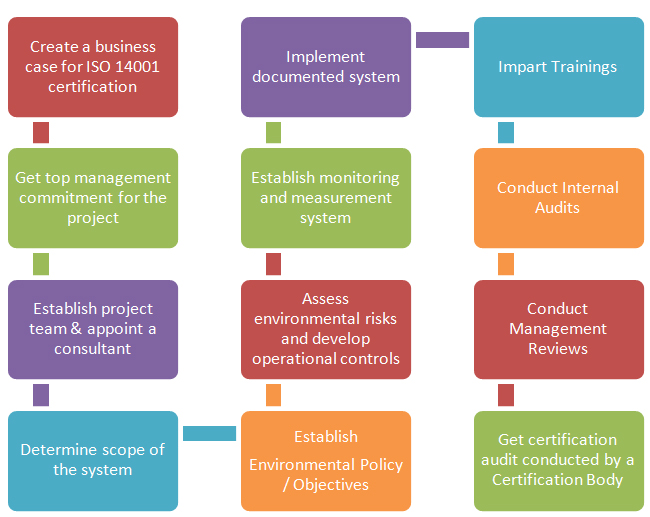Benefits
The benefits that an organization may get out of the application of ISO 14001 and its certification are mostly based on the management’s intentions of selecting this standard. However, following examples provide some direction about what the ISO 14001 can give the organizations in terms of its benefits
“It is our practice to understand the benefits that our customers want by applying ISO 14001 and then design the system in a way to help the organization to realize these benefits”.
An ISO 14001 certified organization is considered to be more reliable than the other similar organizations that are not certified. The certification is globally accepted and is gained by large as well as small organizations hence bring an equality in terms its positioning of brand reliability per say. The certification adds up to the brand recognition.
There are many organizations who give preference to ISO 14001 certified suppliers. For example, if your organization operates in a developing country, then your opportunities for exporting your product/ service to customers from developed countries increase since these customers invariably demand such certification. Non-certified organizations lose out on such opportunities. The certification to ISO 14001 gives a competitive advantage.
Interested parties of an organization include its customers, owners, employees, suppliers, bankers, etc. All these have certain expectations in terms of the environmental performance of the organization. Due to the environmental activities of the organization after application of ISO 14001 based environmental management system, the organization environmental performance becomes more and more visible. As a result the trust level and confidence of all these interested parties get a boost.
An organization that establishes environmental controls tend to save on costs, e.g. controls likeless use of paper, efficient use of energy, etc. bring considerable cost savings for the organization
Due to the rational thinking applied to the way the organizations react to the emergency situations such as fire, spillages, explosions, etc. that impacts the environment, the organizations builds effective plans and thus improves its ability to react and recover.


